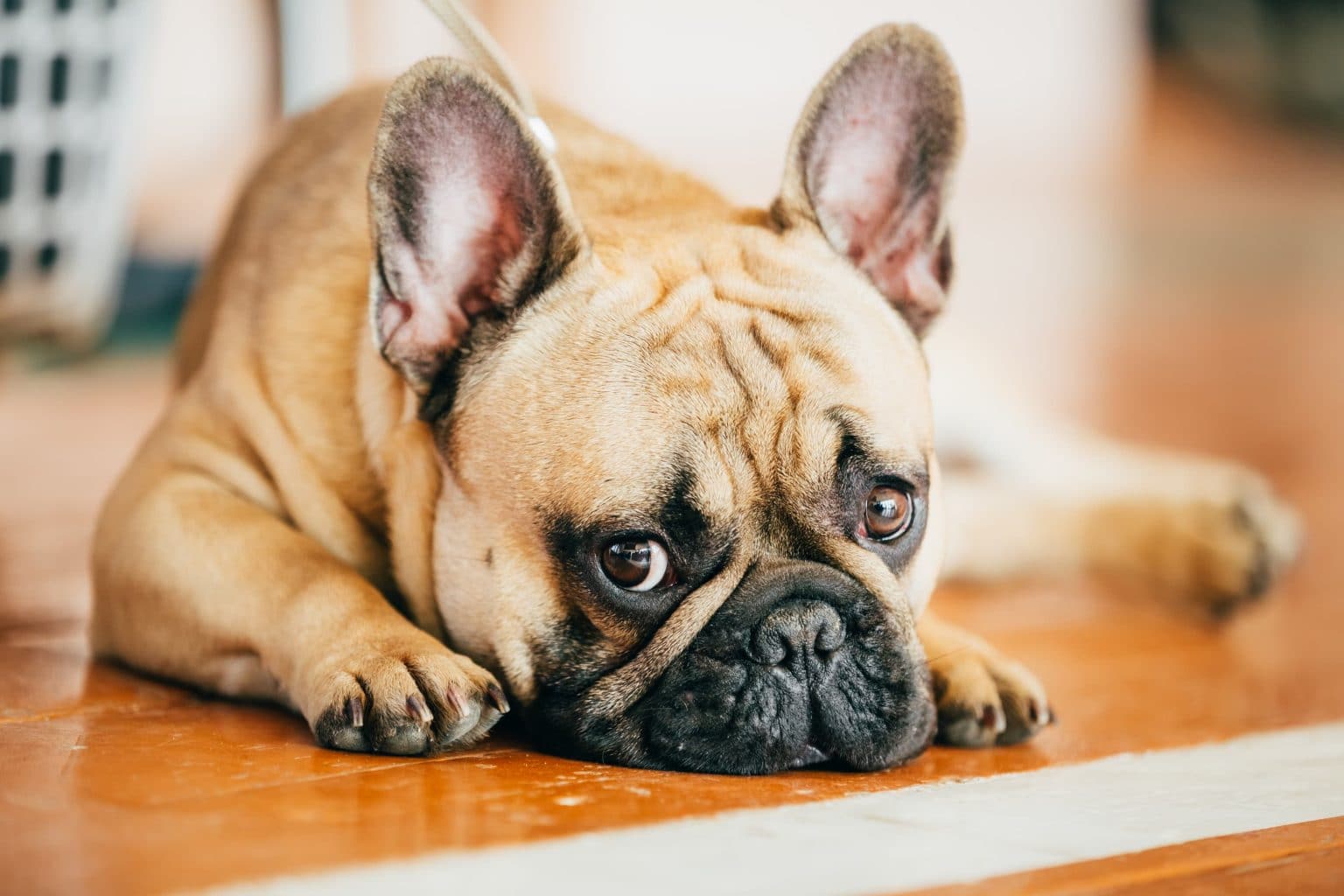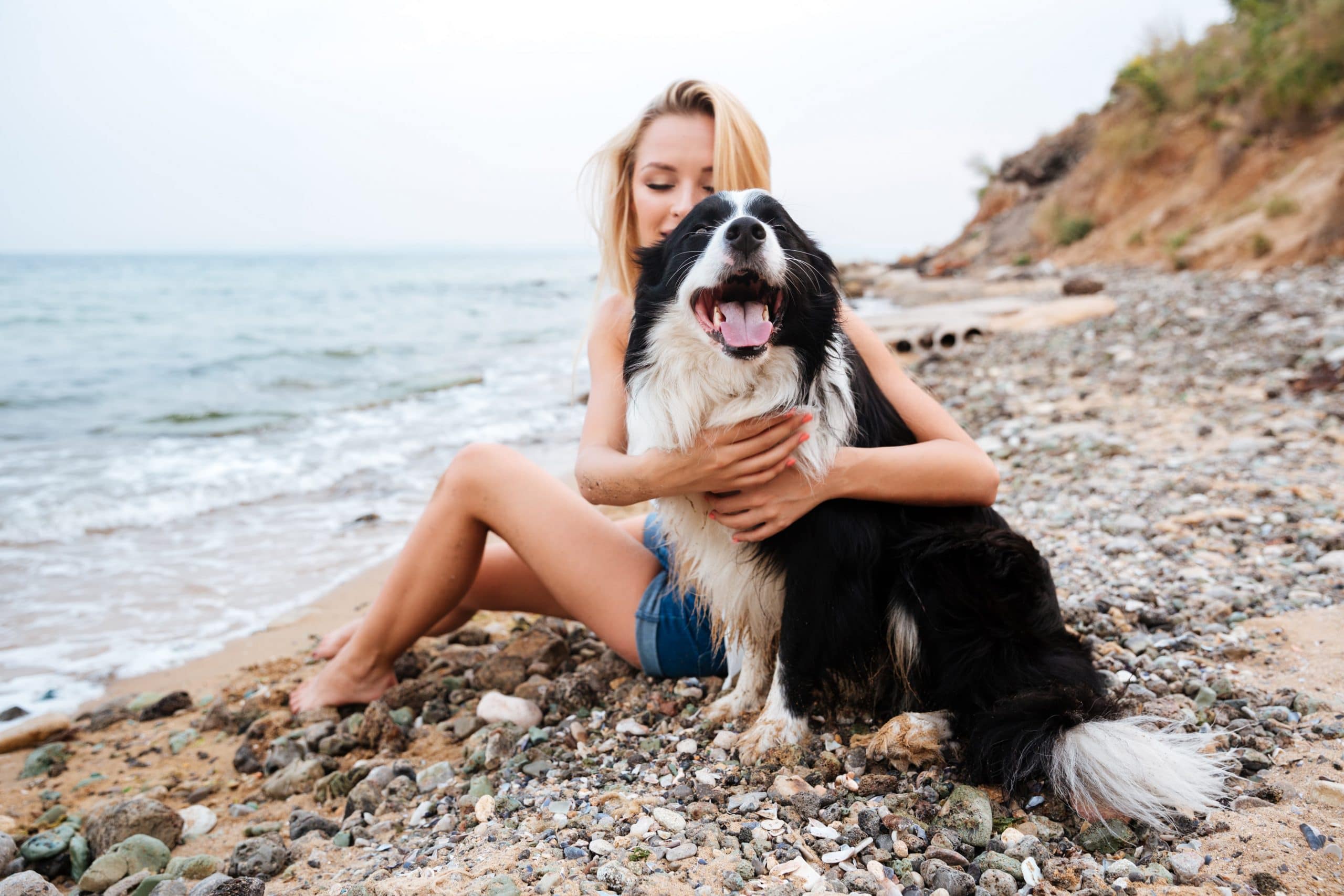CBD for Dogs with Anxiety - Everything you Need to Know
A dog is a loyal companion in hard times, an adventurous friend, a non-judgmental listener and so much more. Dogs really go the extra mile to build a strong relationship with their owners. A person might lose the companionship of an old childhood friend, but at the end of the day, they are sure to return back home to the cuddles of their furry friend.
For a dog who, at the end of the day, is a member of the family, wouldn’t it be heartbreaking to continually find him or her curled up in a corner, expressing feelings of fear, anger, and utter confusion?

Believe it or not, dogs experience anxiety and stress-related issues too. And the scary part? In a world where people suffering from anxiety disorders aren’t taken seriously, do dogs really stand a chance for proper treatment?
This dilemma definitely puts a great responsibility on the shoulders of every dog owner. And fortunately, it is heartwarming to see how far dog owners will actually go to ensure the overall well-being of their dogs is tended to.
How to tell if Your Dog is Experiencing Anxiety?
To fully understand what is bothering your dog, it is ideal to carefully observe his or her behavior. Usually, dogs with anxiety try to indicate to you about their stress through practices like excessive salivating, yawning, licking their muzzle, lifting the front paw, or tucking their ears back. You might also notice repetitive patterns of hiding, covering their heads, trembling, excessive barking, panting, and restlessness.
Dogs with anxiety are more likely to go through uncontrolled urination and bowel movements as well. So if your pup (despite being potty trained) starts making a constant mess around the house – chances are that they need your immediate attention and care.
What are Some Common Causes for Anxiety in Dogs?
Navigating the underlying causes as to why dogs experience anxiety can be tricky. There is a wide spectrum of reasons that might potentially put your dog at risk of anxiety disorders:

Fear of Socializing
Dogs that are accustomed to living alone and aren’t habitual to socializing with crowds of people are more likely to become anxious around crowded places. They will more than likely try to escape parties and get-togethers by either showing too much aggression or sneaking out.
Not only will situations like this put him or herself in a state of panic, it can also make other people in the crowd feel unsafe and uncomfortable.
Separation Anxiety
Being left alone in the house for some dogs means freedom from restrictions. What they weren’t allowed to do in your presence, they can do while you are away. However, for other dogs being alone without a primary caregiver is frightening and stressful.
If your dog begins to bark and howl aggressively every time you leave the house, chances are that he is experiencing separation anxiety. In cases like this, anxiety is caused due to boredom, loneliness, fear or possibly past traumas.
Past Traumas
Usually, dogs that have been rescued and put in the shelters are associated with suppressed traumas. What these dogs go through the most sensitive 14 weeks of their life really casts a lifelong impact on their personalities and how they behave. Being treated harshly, getting beaten up, and chased after really puts them at higher risks of developing anxiety disorders later in life.
Aging Anxiety
Aging could be another prominent reason for dogs with fear. Older dogs are more prone to suffer from cognitive dysfunctions syndrome. Which basically results in the decline of memory, learning, and perception. Once they fail to recall their happy place and recognize their owner – anxiety is bound to take over their personality. It is quite similar to how old age people suffer from dementia.
Physical Pain
Dogs with anxiety might have a history of being exposed to physical pain, illnesses, or injury. Because dogs, just like other animals, aren’t too good at experiencing pain. Due to which they might become more vulnerable to developing anxiety disorders. This factor is particularly true in cases of dogs that have been rescued.

Methods for Calming an Anxious Dog?
Calming dogs with anxiety can be equal parts frightening and confusing. However, not doing anything about it and completely ignoring the symptoms would only make the matter worse. Your negligence might cost your dog a long-lasting anxiety disorder.
Consult Your Vet Immediately
After noticing a strange pattern of behaviors, it is ideal to see your vet and get the anxiety diagnosed. The vet might or might not recommend medicines for your dog. However, the initial decision rests with you being the owner. Because ultimately, it is up to you to modify behaviors and make them feel relaxed.
Find a Trustworthy CBD Company for Dogs
CBD for dogs with anxiety is a wonderful natural alternative to modern prescription treatments. It stands for Cannabidiol and is a chemical compound that is extracted from the hemp plant. It is a relatively new method of treating dogs with anxiety and does not have a psychoactive effect on the consumer. CBD oil restores disruptive cognitive activity and soothes and relaxes the nervous system. What’s really amazing about CBD oil for dogs with anxiety is that there are minimal side effects, to include: drowsiness, a slight increase blood pressure or dry mouth.
Here at Mile High Pawducts, you can come in with a mind full of confusion, and our staff will help you sort out what your dog’s anxiety exactly needs. There’s a complete guide on our CBD based products that explain what dosage is required for the specific size of your dog. Our CBD oils have changed the stressful lives of many pups and their owners. Don’t believe us? Try it for yourself.
Exercise
Just like humans, exercise makes anxious dogs feel refreshed as well. You can always start by taking your pup on morning walks in the fresh breeze. It will help release serotonin that will further aid their anxiety by making them feel good. Moreover, it will gradually help them in getting accustomed to being around strangers.
Massage
Dog massages, if done right, can be beneficial. The aim is to identify and press the pressure points, so the dog feels relaxed and less stressed. Make sure that your dog is in a state to willingly accept the massage; otherwise, you might freak them out. Ideally, you should gently begin to pet him and massage in circular motions around the neck and move on to the shoulders.
Massaging your dog’s pressure points will release chemicals in their brain that are equivalent to receiving a warm hug in a stressful situation. How cool is that?
Dog Calming Music
If you didn’t already know, calming dog music does exist and is already a thing. Just like us, dogs, too, like to fall asleep to soothing music while they are feeling stressed out. The music playlists for this purpose are specially designed to release a chemical in their brain, which in return helps lower down the intensity of stress. Turning on this calming music before going out and leave them along can help your dog feel less lonely and stressed out.
We agree that taking care of dogs can sometimes feel very demanding. However, at the end of the day, every effort you do in making them feel at their best – is worth it!




